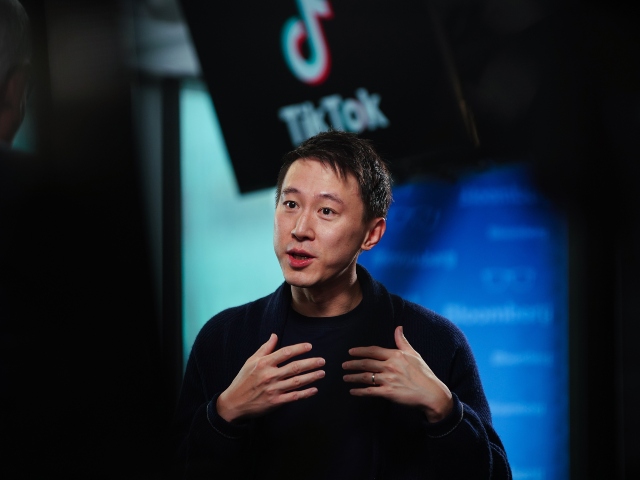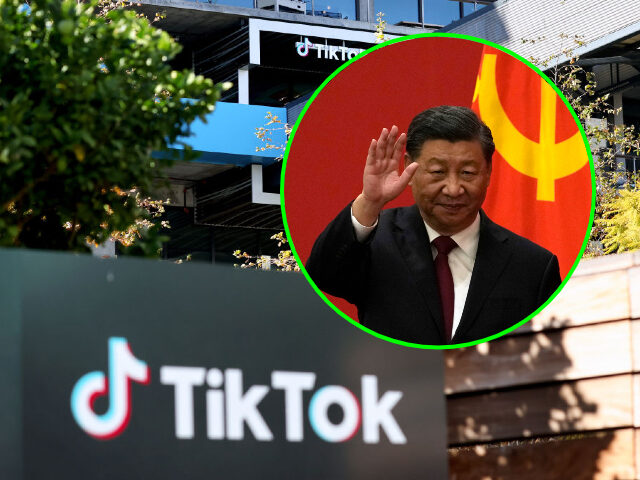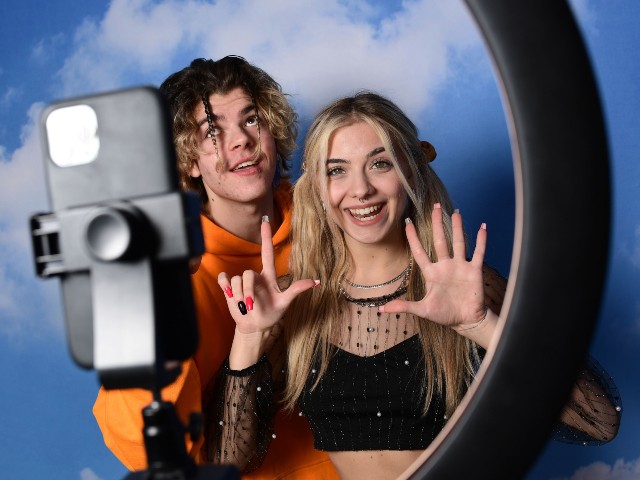China’s TikTok has confirmed that some of its employees have the ability to make certain videos go viral. The company claims it wields this power to “introduce celebrities and emerging creators to the TikTok community.”
The Verge reports that the company’s startling admission came as a result of TikTok’s “Heating” button, which Forbes claims can be used to add particular videos to users’ “For You” pages, thereby boosting views by avoiding the algorithm that is supposed to be the driving force behind the platform’s experience.

Shou Zi Chew, chief executive officer of TikTok Inc., during an interview at the TikTok office in New York, U.S., on Thursday, Feb. 17, 2022. (Christopher Goodney/Bloomberg/Getty)
Jamie Favazza, a representative for TikTok, claims that heating is caused by more than just an increase in views for specific videos. He added that TikTok would “promote some videos to help diversify the content experience” This essentially means to make sure that multiple trends are featured in users’ feeds.
Favazza claims that only “.002% of videos in For You feeds” are heated, which is another indication that TikTok doesn’t do it very frequently. But an internal document that Forbes obtained claims that heated videos account for “around 1-2 percent” of “total daily video views.”
According to the report, heated videos don’t have a label indicating that they have been promoted by TikTok. Instead, they resemble any other videos that the algorithm might have chosen for users, including the American teenagers that overwhelmingly favor the platform.
The information is not entirely unexpected. For years, there have been rumors that TikTok used the promise of promoted content to persuade businesses and politicians to use its platform. Businesses, particularly those in the music industry, have been open about using the platform to promote their brands.
Furthermore, TikTok is not the only social media platform that artificially boosts video views. According to reports, Facebook knew it was displaying false view counts but delayed fixing it in order to draw advertisers and media companies to its platform. Mark Zuckerberg paid a $40 million settlement to advertisers in that case.
As Breitbart News reported:
Variety.com reports that Facebook has admitted to overstating video-viewing metrics during an 18 month period between 2015 and 2016 and will have to pay $40 million to advertisers who claim that they overpaid the firm for ads due to inaccurate data. Despite the settlement, Facebook has continued to claim that the lawsuit is “without merit.”
The proposed class-action lawsuit began in 2016 when two similar lawsuits were filed against Facebook at the same time, these were consolidated and combined with other complaints. Attorneys representing the plaintiffs stated that they planned to file a motion requesting that they get 30 percent of the settlement fund which amounts to $12 million as reimbursement of their $730,000 expenses incurred during the three year period of litigating the case.
Attorneys believe that the settlement only accounts for 40 percent of the $100 million that they estimate advertisers “may realistically have been able to recover” in court. The basis of the lawsuit was over Facebook’s method of calculating video viewing time. Facebook had a policy to not count video views that lasted less than three seconds but by discarding shorter view views, the company arrived at higher average watch times.
The revelation of TikTok “heating” implies that the Chinese company is selecting winners and losers: brands and creators might see their place on someone’s For You page taken by someone with a closer connection to the company. Forbes claims that there have been instances where employees promoted videos from friends, business partners, and even their own accounts by heating up content that they shouldn’t have.
TikTok’s lack of transparency regarding heating makes it difficult to determine which videos reached the top organically, so creators may lose interest in the platform if their videos perform poorly compared to those being boosted.
The report comes as TikTok faces intense competition from platforms like Instagram, which is pushing to pay creators for Reels, and YouTube, which recently began an effort to attract new creators by giving them a percentage of ad revenue made from YouTube Shorts.
Read more at the Verge here.
Lucas Nolan is a reporter for Breitbart News covering issues of free speech and online censorship. Follow him on Twitter @LucasNolan


COMMENTS
Please let us know if you're having issues with commenting.